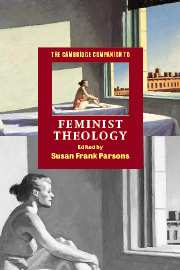11 - Creation
from Part two - The themes of feminist theology
Published online by Cambridge University Press: 28 May 2006
Summary
Reflection on the relationship between humans and the natural world is an issue of acute concern for most feminists, not just feminist theologians. Interpretations of this relationship range from more conservative conservation approaches to more politically radical ecology frameworks. Emerging from within this debate we can identify forms of spirituality that are centred on the earth, often loosely based round the notion of ecology. While not necessarily articulated as a systematic theology in the traditional sense of the word, those feminist theologians who write about the world as creation do so in the context of this ecofeminist framework. I therefore intend to begin this chapter with a brief review of ecofeminism in general, before moving to a discussion of particular theological interpretations.
THE RISE OF ECOFEMINISM
Ecofeminism is sometimes known as the ‘third wave’ of feminism, following the liberal-based emancipation movements of the nineteenth century and the more culturally conscious movement of the 1970s. Ecofeminism understood in this way is often associated with the politics of radical ecology. In this case there is a close parallel drawn between the structural oppression of both women and nature through the project of modernity. It was in 1974 that the French writer Fran¸coise d’Eubonne called on women to lead a practical ecological revolution through ecofeminisme. Ecofeminism in this sense becomes the means sought for the liberation of both women and nature.
- Type
- Chapter
- Information
- The Cambridge Companion to Feminist Theology , pp. 190 - 205Publisher: Cambridge University PressPrint publication year: 2002

